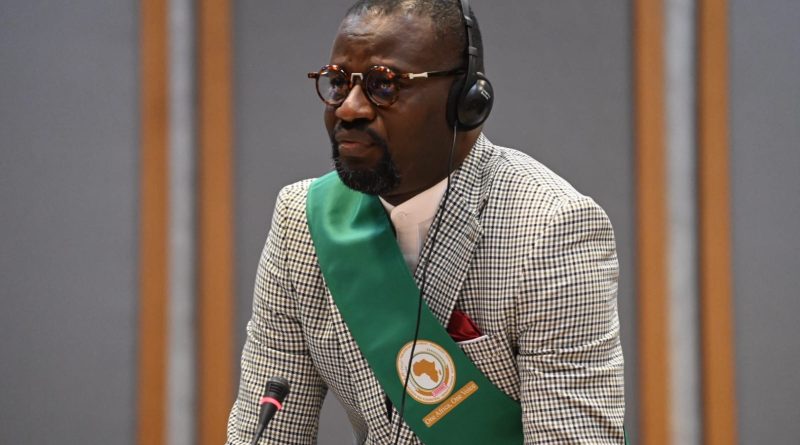Annoh-Dompreh Calls for Sustainable Climate Smart Farming in Africa
By: Isaac Boamah Darko
Frank Annoh-Dompreh, Member of Parliament for Nsawam-Adoagyiri and a returning Member of the Pan-African Parliament (PAP), has used his re-entry into continental politics to call for bold reforms in agriculture and industrial policy.
Speaking during a plenary session at the PAP in Midrand, South Africa, Annoh-Dompreh urged African lawmakers to prioritize a Model Law on Soil Fertility and advocate for a conservative, sustainable framework for factory development across the continent.
The Minority Chief Whip,
Annoh-Dompreh, message was clear: Africa must embrace climate-smart agriculture and environmentally conscious industrialization if it is to secure a sustainable future.
“We cannot talk about food security or economic growth without protecting the very land we depend on,” he said. “The model law on soil fertility is a critical step, but it must go beyond policy—it must engage our farmers directly.”
Model Law on Soil Fertility: Farmers Must Be Heard
Annoh-Dompreh emphasized that while the draft Model Law on Soil Fertility across Africa is a step in the right direction, its success will depend on how well it includes the perspectives of smallholder farmers and indigenous land users.
“Farmers are not passive beneficiaries; they are active participants in the health of our environment. Any model law that excludes them is bound to fail,” he warned.
He called for increased consultation with farmers during legislative processes, and proposed that African countries adopt spatial land planning to clearly distinguish farming zones from estate and industrial areas.
This, he said, would help reduce conflicts over land use and protect fertile lands from rapid urbanization and industrial encroachment.
Annoh-Dompreh also stressed the need to strike a balance between commercial and organic farming, particularly in the use of agrochemicals.
He urged his colleagues to recognize the long-term damage caused by excessive fertilizer use, and instead promote organic methods, water conservation, and carbon sequestration as key tools in maintaining soil health.
“The future of African agriculture lies in conservation—not in the overuse of agrochemicals. Let’s learn from communities that farm organically and still produce bountiful harvests.”
A Call for a Conservative Model Law on Factories in Africa
In addition to soil policy, Annoh-Dompreh proposed the development of a Model Law on Factories in Africa, advocating a conservative and environmentally responsible approach to industrialization.
He cautioned against haphazard factory siting and urged lawmakers to consider the environmental consequences of unchecked industrial expansion.
“Yes, Africa needs factories, but not at the cost of our land, air, and water. We must regulate where and how factories are built, especially near agricultural zones,” he said.
He proposed that any future model legislation on factories should include strict environmental impact assessments, zoning laws, and green technology incentives to align with the African Union’s Agenda 2063 and global climate commitments.
Returning to Serve with a Renewed Focus
Annoh-Dompreh returns to the PAP with a legacy of leadership.
During his first term, he served as Deputy Chairman of the PAP’s Ad-hoc Elections Committee and played a vital role in restoring order during a turbulent leadership transition in 2022.
The election of Chief Fortune Charumbira as PAP President was conducted under his watch, with backing from the African Union Legal Counsel.
Now in opposition in Ghana’s Parliament, Annoh-Dompreh is part of a newly reconstituted five-member Ghanaian delegation to the PAP.
The delegation is led by Hon. Bernard Ahiafor and includes Hon. Zanetor Agyeman-Rawlings, Hon. Collins Dauda, and Hon. Rockson-Nelson Dafeamekpor. Hon. Patrick Yaw Boamah serves as an observer.
A Vision for a Sustainable Africa
The Pan-African Parliament, headquartered in South Africa, serves as the legislative arm of the African Union. Its mission is to promote integration, development, and the voices of African citizens in continental governance.

